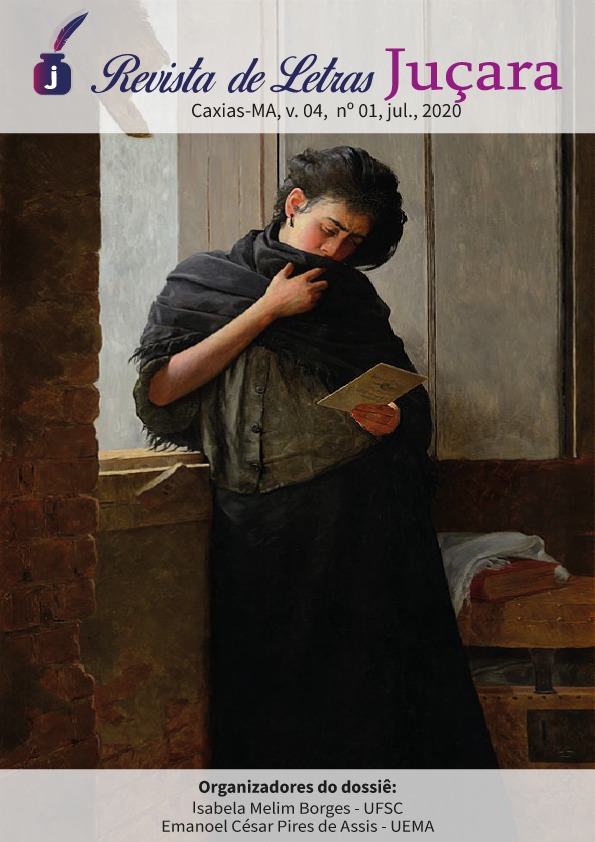THE SEGMENTATION OF THE MARIA-NOVA, DORA AND CIDOCA-CIDOCA PERNASONAGES IN BECOS MEMORY (2017), CONCEIÇÃO EVARISTO
DOI:
https://doi.org/10.18817/rlj.v4i1.2093Abstract
This research presents a discussion of the work Becos da Memoria (2017), by Afro-Brazilian writer Conceição Evaristo from the perspective of race and gender, prioritizing, above all, the presentation of the characters Maria-Nova, Dora and Cidinha-Cidoca. To this end, the social and cultural space are defined as the guiding elements of the analysis, as well as the individual and collective stories and memories in which such characters are submerged. The theoretical foundation is guided by feminist criticism and cultural studies, therefore, guided by Scott (1995); Santos (2008); Quijano (2000); Pacheco (2013); Said (1995); Mignolo (2003), among others. Given this, it is observed that in Becos da Memoria (2017), through an uncomfortable and accessible literary language, Conceição Evaristo reviews the logic of capitalist patriarchalism critically, proposing themes and characters historically pursued by this system. Moreover, in the process of composing the characters, the author attributes crafts and specific characteristics to each one of them, so Maria-Nova, Dora and Cidinha-Cidoca represent, respectively: the construction and acceptance of identity in the black from the experience of the other; the deconstruction of the sexual stigmas of the black female body as that which is provided only with sexual desires; and the emancipation and empowerment of the black woman in a society that marginalizes her.
Downloads
Published
How to Cite
Issue
Section
License
A submissão de originais para a Revista de Letras Juçara implica na transferência, pelos autores, dos direitos de publicação. Os direitos autorais para os artigos publicados nesta revista são do autor, com direitos da revista sobre a primeira publicação. Os autores somente poderão utilizar os mesmos resultados em outras publicações indicando claramente a Revista de Letras Juçara como o meio da publicação original.


